KAILUA-KONA — “Jo, The Medicine Runner,” an upcoming film set in 1920s Kona, finds its inspiration in the region’s past as the story of a young half-white, half-Japanese man in the region’s coffeelands.
But the story of the soon-to-be-released feature could also signify the island’s potential future — a place where filmmakers flock to produce everything from local indie pictures to the biggest blockbusters.
“Jo, The Medicine Runner,” starring Matt Dillon and Jim Caviezel, is one of 14 companies that have come through the GVS Accelerator, a local public-private initiative at Honua Studios in the Kaloko Light Industrial Park. The film’s producers spent $2.5 million on Hawaii Island, leading to the creation of 175 jobs and support of 875 others through the use of local vendors, accommodations and other businesses.
“My big belief is if the county and state will embrace it, this island can be more than construction, hospitality and tourism,” said Derek Hall, managing director of Honua Studios, the GVS Accelerator and GVS Connect. “I believe film could easily be one of the pillars of industry on this island.”
“Jo” is the first film to come out of the accelerator that will be fully released in theaters, and Hall said he’s cautiously optimistic that it will inspire the county and state to maintain support of the facility and program as officials consider across-the-board cuts.
This year is the last that the GVS Transmedia Accelerator Program is expected to get funding from the county, according to the Hawaii Island Film Office’s film commissioner, Justin Finestone.
Finestone said while the film office would still be able to handle permits and day-to-day operations, the budget cuts could impact the island’s film infrastructure, including Honua Studios and 18 resident companies that offer services to filmmakers.
“We’re just starting to develop that infrastructure and productions are noticing that and seeing value in our island because of that,” Finestone said. “So to lose that would be a blow, because it’s something that we’ve built up over the last three or four years and to have it go away is just another piece of film infrastructure that we don’t have anymore.”
‘One-stop shop’
The aim for Honua Studios, which opened in April 2014, is to be a “one-stop shop” and hub for media and creative industries on the island.
There are 18 resident companies that work out of the facility, spanning development, pre-production, production and post-production. Resources include the island’s largest production stage and greenscreen, an edit suite and GVS Connect, a private fiber for very-high-speed internet that allows for real-time collaboration with 450 studios around the world. With that connection, a producer in New York, Los Angeles or London could collaborate with production staff located on the island, review the footage in real-time and provide immediate feedback, rather than corresponding via couriers.
And while big blockbusters are great, boosting the economy and drawing talent and experience here, Hall said they also want to ensure Hawaiian stories are shared as well.
“Whether it’s just something that’s using Hawaii Island to replicate the moon or Mars or South Africa or whether it’s to tell a story of historical significance here, we want it all to be told,” Hall said.
The GVS Accelerator, meanwhile, offers filmmakers and others a chance to pick up momentum for their projects, setting them up to seek full funding and get their projects produced.
Career launching pad
Anybody can submit a project — typically a film script, though a wide range of other projects are considered — and a board then reviews and ultimately accepts projects that will be accelerated.
Over a six-month period, GVS Accelerator, the only accelerator of its kind in the nation, invests $50,000 into the project in exchange for 10 percent of the company. The accelerator sets up companies with not just a polished script, but also a schedule, budget, concept art and possibly a trailer — essentially everything needed to approach potential investors for full funding.
“Once you’re moving, it’s easy to move,” Hall said. “But going from zero to one — those development steps, those early stages, those startup stages — that’s the tough moment. That’s where it’s difficult to get traction and to move forward. But once you start getting momentum, things can typically take off from there.”
State, county funds uncertain
At the time of the accelerator’s launch in April 2014, the Hawaii Strategic Development Corp., a state agency aimed at promoting economic development through partnerships with private investors, announced a $1.2 million commitment to the GVS Accelerator. Of that, $700,000 — matched by the county — was spread over three years for operational costs and $500,000 — matched by a private investor group — went toward seed capital for companies accepted into the accelerator, according to Karl Fooks, president of the Hawaii Strategic Development Corp.
In fall 2017, GVS Accelerator received a $350,000 grant for operational purposes from the Hawaii Technology Development Corp., a separate state agency focused on developing the state’s technology industry. That agency’s executive director and chief executive officer, Robbie Melton, said the availability of future funds won’t be known until the Legislature finalizes a new budget.
And while the county — which Finestone said has granted $862,000 to the GVS Accelerator facility, operations and management from April 2014 to present — is still going through its budget process and nothing’s been approved, Finestone said, there’s no plan at this point to fund it past this fiscal year.
“The county’s cutting back in all facets, and in all departments we’re taking reductions,” he said. “So it’s just something that we couldn’t afford to do so far next fiscal year, unless things change in the next few months.”
Hall said he wants to see a future where Honua Studios is self-sustaining and isn’t reliant on the government, adding he believes that’s just a few years away, but in the meantime, he said, he wants that partnership to continue, “so we can bridge that gap.”
He added the studios’ leadership is looking at options, but if funding stops, he said, “maybe that’s some writing on the wall.”
“And it’s not good writing on the wall, because the bottom line will be that no one tries to do film on this island for a long time,” he said. “At least, that’s what I think.”
Hopeful for a hit
Hall said he hopes “Jo” can inspire state and county officials to stay in the game, also noting some other projects currently in the accelerator. Some of those, he said, would make “Jo” look like a very small project in budget terms, meaning the corresponding economic impact could be much bigger.
Other productions have already made their mark on the local economy.
Finestone said production of “Jumanji,” part of which filmed on the island’s east side, spent almost $1 million on the island, and the Nickelodeon program “Paradise Run” shot 30 episodes last year and 20 the year before, spending several million dollars.
Hall also said word is already getting out within the industry about the potential for Hawaii Island as a filmmaking destination and the facilities available at Honua Studios. That means not just money for the island’s economy but also a new industry of jobs to attract and keep local talent here on Hawaii Island.
“There is a real domino effect in play,” he said, “if we can just push over that first significant domino.”







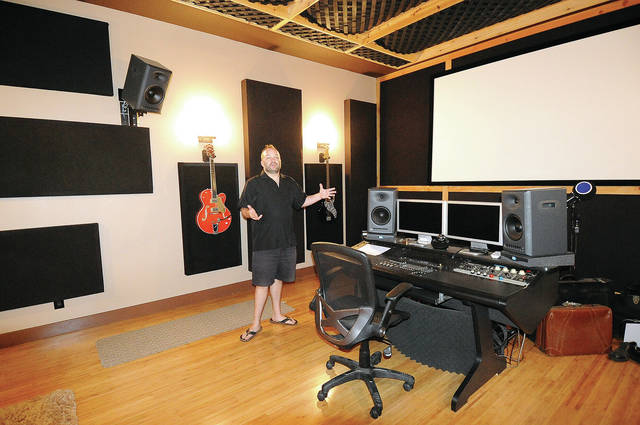
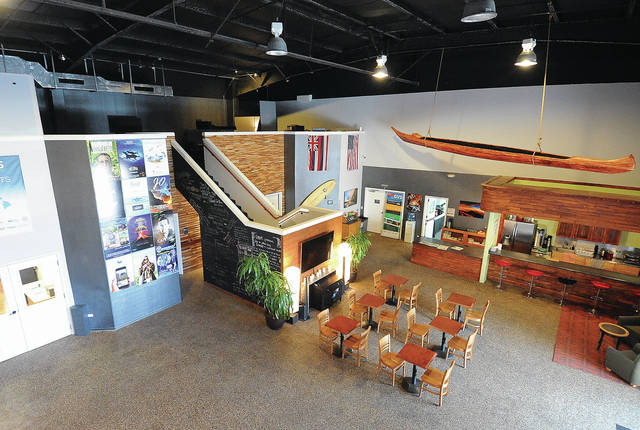
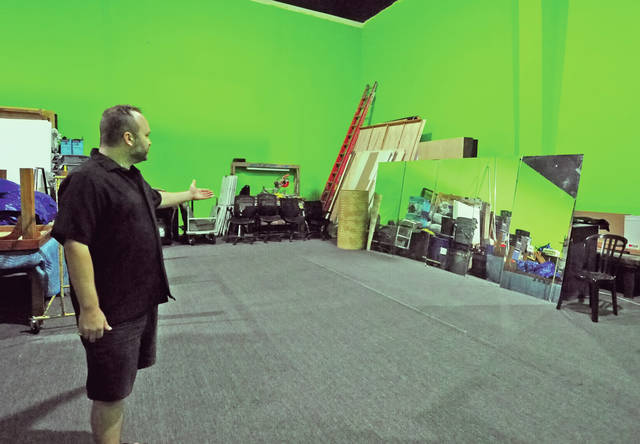
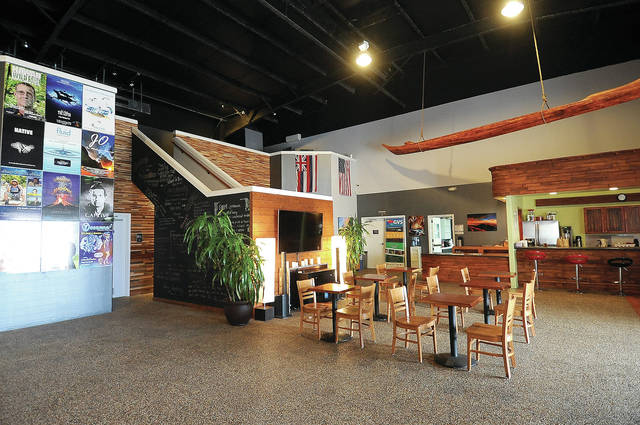
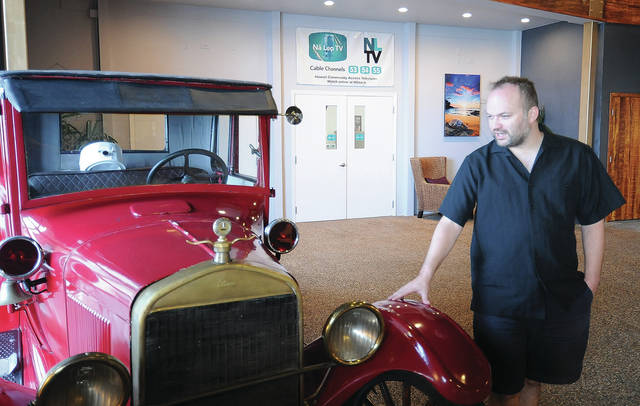
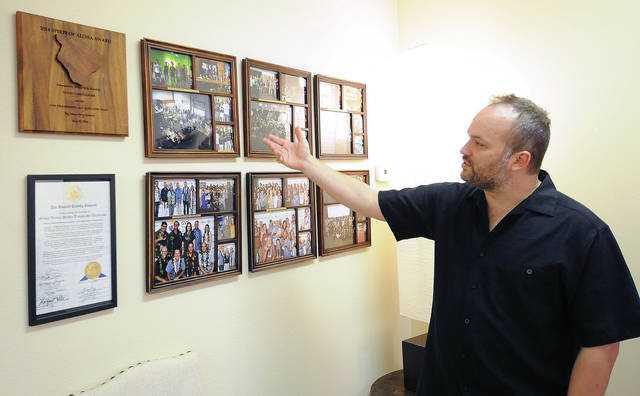


If Hall feels that Honua Studios is going to be self sustainable, then he should be looking to private investors and convince them. The moneys he wants from us tax payers, should be saved for raises for our well deserved public employee and their bosses.
You mean the extra $20+ million doesn’t cover that in this years budget? A few hundred thousand a year for a return of millions to the local economy makes sense to me. Good for everyone.
Our tax burden per tax payer right now is over -27K as stated at “state data lab” and you feel this would be good investment or a good gamble for a broke government. I stand by, my earlier statement. We are not far behind New Jersey, Illinois, or California. And if you and friends like this deal then open a gofundme account and take the gamble. Hawaii is a “sinkhole state” by that I mean Hawaii does not have enough assets to cover it debts.
Harry Kim would be foolish to stop funding the accelerator just as it is on the brink of success. Film brings success not just at the box office, but also drives tourism and other industries. It’s a clean industry with a minimal footprint.
Kim would be a fool to spend money he doesn’t have, the film industry is fickle at best and you do use all the best buzz words so I can’t believe you are in a business of any sort. Watch “Shark Tank.” Hall need skin in the game and he has none and if the government give him more money what makes you think he will work extra hard to get this done?
They’re bringing Hollywood money here? Inspiring the keiki with a new creative outlet? Why would we not fund this? Seems like an easy win for everyone.